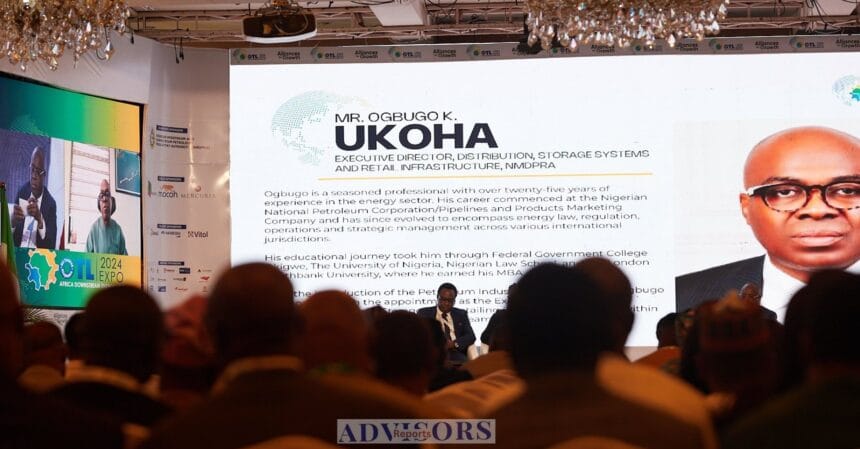… sets to integrate legacy operators at zonal levels for improved gas accessibility
… confirms significant rise in gas-related project applications
Ukoha predicts shift in Nigeria’s energy focus from 209TCF reserves to last-mile delivery
Oredola Adeola
The Nigerian Midstream and Downstream Petroleum Regulatory Authority (NMDPRA) has announced a strategic national gas distribution grid system designed to streamline natural gas delivery across Nigeria, establishing a structured, regulated network that enhances efficiency and ensures last-mile access for end users.
Mr. Ogbugo Ukoha, Executive Director of Distribution, Storage Systems, and Retail Infrastructure at NMDPRA, disclosed this in his remarks virtually during Session VI on Day 3 of the summit, themed “New Energy Order: Updates on Gas, CNG, and LPG.”
According to Ukoha, the grid system will assign operators to designated zones across the country, reducing the need for trucking by enabling gas to be piped directly to end users.
“This is going to ensure that every gas molecule within the country is piped throughout without trucking, which is far more cost-effective than trucking,” he said.
He further highlighted the authority’s plan to streamline operations by integrating existing players within each gas network zone and standardizing their practices.
“To support this, we are identifying and regularizing existing players in the gas network zones, enabling them to align with new regulatory standards.
“We are on the threshold of integrating these legacy operators within the zones to key into the grid system, ensuring they contribute to a structured, regulated gas network,” he stated.
He also stated that the 614-kilometer, 40-inch, Ajaokuta-Kaduna-Kano (AKK) pipeline is a central component of the country’s gas vision.
“Upon completion, the gas pipeline – expected to deliver two million standard cubic feet of gas daily – will be complemented by spur lines connecting multiple locations along its route, including Ajaokuta, Abuja, Kaduna, and Kano. This project is a major enabler for gas growth in Nigeria,” he said.
Mr. Ukoha noted the anticipated completion of the Nigeria LNG Train 7 project, expected to add an impressive seven million tonnes per day of liquefied natural gas (LNG) capacity by next year.
“The Train 7 project is critical to fueling our gas sector’s expansion and meeting delivery timelines,” he explained.
Mr. Ukoha added that, following directives from the Minister of State for Gas Resources, Mr. Ekperikpe Ekpo, effective November 1, 2024, the NMDPRA is enforcing a mandate requiring international and local LPG producers to prioritize domestic supply, ensuring Nigeria meets full local demand before permitting exports.
Mr. Ukoha, “The directive to producers to focus on domestic LPG supply will last until at least November 2024.
“Additionally, the Nigerian National Petroleum Corporation (NNPC) is now required to reinject the equivalent volume of gas exports back into the domestic market to support local supply.
Mr. Ukoha observing a notable increase in gas-related project applications said, “We are seeing a surge in projects across the gas value chain, from UTM’s floating gas processing facilities to new mother and daughter CNG station licenses.
“These developments point to a promising trajectory for natural gas in Nigeria, with the potential to reshape our energy landscape in the next three years if fully realized.”
Mr. Ukoha said, “Our teams are engaged in guiding these projects through regulatory processes, providing support throughout the licensing and operational phases.
The NMDPRA’s Executive Director of Distribution, Storage Systems, and Retail Infrastructure, optimistically emphasized that Nigeria’s energy discussions will soon shift from its 209 trillion cubic feet (TCF) of gas reserves to achieving last-mile delivery.




